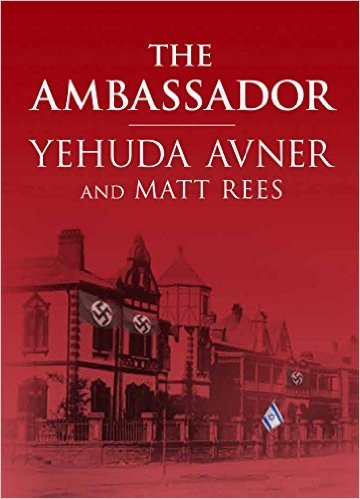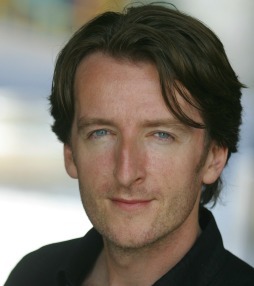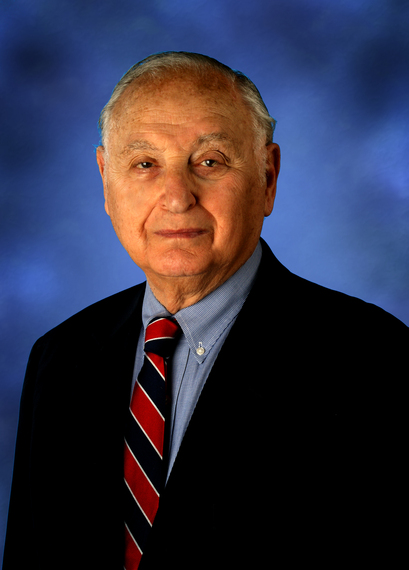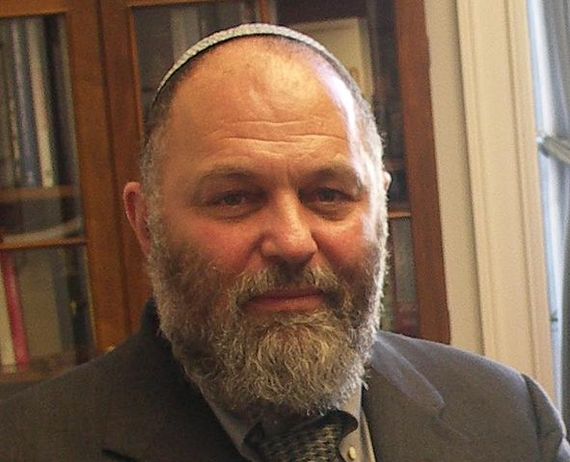Yehuda Avner was the first author I dared write to, just to tell him I was a fan of his. It would have been in 2000 or so, which is when we got our first personal computer and discovered email. My husband and I have always purchased the Friday edition of the Jerusalem Post and when there was a piece by Avner, recounting his true stories of his time as an adviser to five Israeli prime ministers, we'd drink his words as if they were liquid manna from the skies. He was that interesting, just that good.
Well, we had the computer, we had an email account, and there at the bottom of Avner's latest column, was his email address. Did I dare?
I did.
I told him how I felt about him and about his writing. And he, being a proper English gentleman, thanked me for my note. I was thrilled to hear from him, and the experience illustrated for me how email had changed the world, made everything and everybody accessible with a few clicks of the mouse. It was this ease of access and the realization of same that led to my own career as a writer.
I just wasn't ready when Yehuda Avner died, in the same way I wasn't ready when Robert B. Parker died, or for the deaths of any of my other favorite authors. I wasn't ready to say goodbye to Avner's voice. But it wasn't like I had any say in the matter.
And then, what do you know? His voice reached out to us seemingly from the grave, in the form of a new book, published posthumously, The Ambassador, written in tandem with award-winning crime fiction writer Matt Rees. The book explores what might have happened if Israel had attained statehood before the Holocaust. Would we have saved most of the Jews? Gotten them out of Europe and over to Israel and out of the clutches of the Nazis and their extermination camps?
It's an interesting enough hypothetical, considering the cruel policy of the British was to turn away refugees from British Mandate Palestine. Alas, I confess I was disappointed in the book, because clearly, this was not anything like Avner's columns in the Jerusalem Post, nor was it all similar to The Prime Ministers, his magnum opus. The Ambassador was something altogether different and I wasn't sure how I felt about that. I had been hoping to, yearning to hear Yehuda Avner's voice just one more time.
Instead, what I heard was, I now know, Matt Rees' voice. Rees' voice is a perfectly good voice, for sure. It just isn't Avner's voice which is what I had been hoping for. Already a fan of Matt Rees? You'll love The Ambassador. Do you like historical thrillers with a Jewish twist? The Ambassador is your kind of book. Just don't buy the book hoping to hear/read Avner once more, because in my opinion, The Ambassador, just isn't Avner.
On the other hand, when you read my interview with Matt Rees, below, you'll gain an appreciation of how this book project comforted Avner during his final months. Maybe from that standpoint, purchasing and reading The Ambassador is the least we can do for Avner's memory, since clearly this project was dear to his heart, as Avner was to mine. 
The Ambassador Co-Author Matt Rees
Matt Rees was wonderful to take on this project, and he was a fascinating interview subject, as you'll soon discover:
VE: How did you meet Yehuda Avner?
Matt Rees: We were introduced by Matthew Miller, publisher at Toby Press, who got to me through a mutual friend, the journalist Matthew Kalman. Miller published The Prime Ministers and Yehuda had told him about his novel project. Miller wanted to do the book from the perspective of a publisher, in other words as a business and literary proposition. But I know he also felt very close to Yehuda, and I'm sure he'd have wanted to go ahead even if the book hadn't been based on a great idea. Fortunately it is!
VE: Did Yehuda know he was not going to live to see The Ambassador in print?
Matt Rees: The day Yehuda and I sat down to talk about working on the book was the same day his doctor told him he had three months to live. We both wondered how that would work out. To write a book about the Holocaust. With a man suffering a terminal illness. You'd think it'd be a downer, to say the least. In fact it was the most fun either of us had in our lives.
VE: Was the book completed before Avner died?
Matt Rees: It was completed two weeks before Yehuda passed away. In those two weeks we planned out our next novel! I've written it, and Toby Press will publish it a year from now. It's about an event in which Yehuda, as Prime Minister Begin's close adviser, was intimately involved - the bombing of the Iraqi nuclear reactor in 1981.
VE: This book was so different from anything Avner had ever written before. How did this project come about?
Matt Rees: Anyone who writes a book of nonfiction as Yehuda did also has at the very least a sneaking desire to write fiction. He'd have done it himself had it not been for his illness. That's where I came in. I've written six previous novels, so I was able to take us beyond the trial and error stage that takes up so much time for a first novel. That was important, given that we didn't have much time.
VE: Can you describe the working process the two of you developed in working on The Ambassador?
Matt Rees: I would go over to his apartment in Kiryat Wolfson, just across from the Knesset, and sit in his office with him a couple of times a week. We'd hash things out, plotting and discussing character and mulling over history and talking about Yehuda's time as an Israeli ambassador, his recollections of prime ministers with which he worked (in particular Ben-Gurion, who's a character in The Ambassador). Then [I'd] go off and write for a couple of days, and he and I would sit once more and discuss what I wrote.
VE: You ask a question at the book's end: "Could immediate, decisive action at that time of the kind taken by our fictional Israel and our fictional Dan Lavi, have changed the reality of the mass murder that soon unfolded?" leaving the conclusion to the reader.
I've read the book. I know what I think. I want to know what you think.
In writing this book, did you convince yourself, one way or the other about how such an action might have changed the course of events? Did you surprise yourself?
Matt Rees: The Holocaust is such an all-encompassing insanity that no matter how much I read or study it, there's always something that surprises me. In this case I was shocked at how quickly the Holocaust unfolded, in that most of the murders took place in 1942 and very early 1943. That suggests to me that, had some kind of action been taken similar to the decisive action our hero takes in The Ambassador, events could have been shifted during that relatively brief period.
However, our book makes it clear that, even if Israel had existed, there would still have been mass murder and horror. Yehuda and I discussed that we didn't want to write a Polyannaish version of the Holocaust, because that would somehow diminish what happened.
VE: I thought I could see how the various characters in your book mirrored the variety of people and movements in pre-State Israel and even in Israel, today. Shmulik Shoham, for instance, made me think of the Irgun and perhaps, in today's Israel, his counterpart would be Itamar Ben Gvir. Did you model him after anyone in particular?
Matt Rees: Physically I based him on Effi Eitam, who I met a number of times. But as a character he's a lot more angry than Effi. Really the two main characters at the Israeli Embassy in Berlin during WWII - Dan, the ambassador, and Shmulik, the Mossad chief - represent the different impulses that would come over anyone, certainly any Jew, in that situation. Dan wants to rescue Jews: Shmulik wants to kill Hitler.
Effi Eitam, prototype for character Shmulik Shoham (photo credit Juda S. Engelmayer)
We want readers to pose that question to themselves, and to look at today's events in that context too. To see the complexity of the political and diplomatic decisions that face Israel.
VE: Did Avner see himself in Dan Lavi?
Matt Rees: I saw him in Dan Lavi. He was thinking of another friend of his when he developed the idea. I identify on some level with almost any character in my novels. As a writer you have to try to find the humanity within a character - even when it's an awful man like Eichmann - because otherwise you can't write a convincing character whose responses and impulses are compelling to the reader.
To illustrate this: I tried to write a couple of chapters from the point of view of Hitler, but I just couldn't do it. He was an absolute psychopath and, therefore, I couldn't "get inside his head." Essentially there was no trace of humanity onto which I could attach myself as a writer. So we had to ditch those chapters or change them to the point of view of some other character. My wife was particularly gratified about that - she didn't want me to be sitting over dinner "inside Hitler's head."
VE: The character of Wilhelm Gottfried is a curiosity to me. He serves his country, but apparently for selfish reasons. Do you think he cares about his Jewish identity? Why would any government trust a man with obvious ulterior motives to represent its interests abroad?
Matt Rees: He cares about love. For the Countess. For music. And for Jewish life and culture in the context of Germany. All those are elements we wanted readers to recall. He represents the Jewish life in Europe that was destroyed by the Nazis. Destroyed on the ground, as it were, but not eradicated.
VE: What does it feel like to co-produce a book when your partner is already gone?
Matt Rees: When I edited some video for youtube that had been filmed with me and Yehuda a few days before his death, it was quite a shock. But I don't think he's completely gone. At his funeral, when his body was carried past me, I quite clearly felt the force of his personality instructing me to get on with the next book!
VE: Who does Avner leave behind (other than his prodigious works)? I imagine The Ambassador will be his final legacy to his children. Will there be a movie? Who would play Dan Lavi?
Matt Rees: His children were very moved by the way he worked on the book at the end. It gave him a lot of life, even as life was ending. So, yes, it's very important and significant to them. I do hope there'll be a movie. I can't visualize a particular actor, because I simply think of a young Yehuda when I think of Dan. When people read the novel, I'd like them to let me know on Facebook or through my website who THEY think should play Dan and the other main characters in the film.
VE: What's next for Matt Rees?
Matt Rees: I'm working on a new series of novels about an American agent with the Immigration and Customs Enforcement agency. Also I'm finishing OSIRAK, the novel Yehuda and I plotted out about the Iraqi nuclear reactor. Apart from that, I'm focusing on a fantasy football competition that currently obsesses my eight-year-old son. Takes up a lo-o-o-o-ot of time, as you can imagine!

